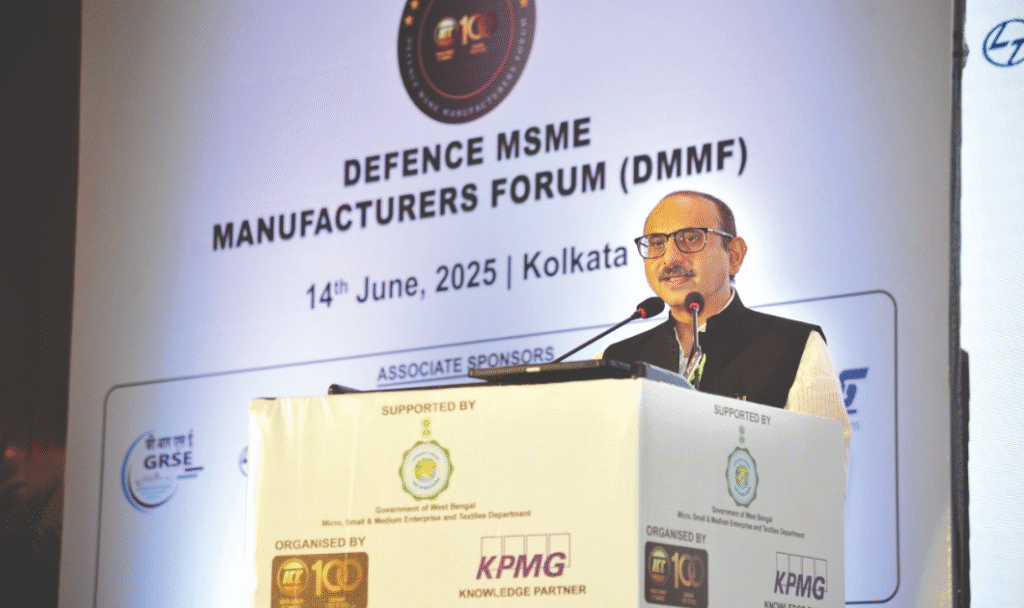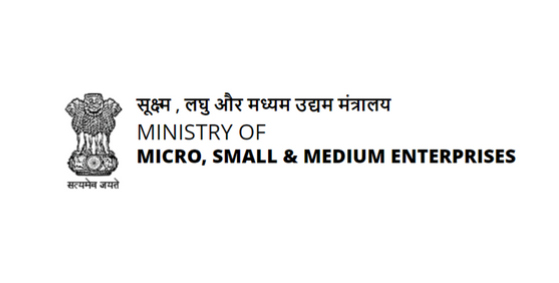West Bengal is making strategic moves to position itself as a vital player in India’s growing defence manufacturing ecosystem. In a recent development, the state government has urged private companies and industrial stakeholders to tap into the vast potential of Micro, Small, and Medium Enterprises (MSMEs) for boosting defence production. The initiative aligns with the Centre’s ‘Aatmanirbhar Bharat’ (self-reliant India) campaign and seeks to make Bengal a robust hub for indigenised defence equipment and components.

Bengal’s MSME Strength: A Hidden Powerhouse
West Bengal houses over 88 lakh MSMEs, making it one of the largest bases for small and medium-scale industries in India. These enterprises span across sectors like precision engineering, metal fabrication, electronics, chemicals, textiles, and more—many of which are directly or indirectly relevant to defence manufacturing.
Recognising this, state officials, during various industry meets and defence expos, have appealed to large corporations and defence PSUs (Public Sector Undertakings) to integrate Bengal’s MSMEs into their supply chains. The state is particularly focusing on Tier-II and Tier-III suppliers who can manufacture components, tools, machinery parts, and sub-systems for the armed forces.
Government Support and Policy Push
To accelerate this vision, the West Bengal government has laid out several enabling measures:
- Cluster Development: Establishing defence-focused MSME clusters in areas like Howrah, Durgapur, and Kharagpur, which already have a strong industrial base.
- Ease of Doing Business: Offering single-window clearances, land allotments, and subsidised utility rates for defence-oriented MSMEs.
- Skill Development: Partnering with academic and technical institutes to train youth in advanced manufacturing and defence technologies.
- Access to DRDO & Armed Forces: Facilitating MSME participation in Defence Research and Development Organisation (DRDO) projects and tenders issued by the Army, Navy, and Air Force.
Call to Action for Large Enterprises
The state has urged major companies, both public and private, to act as enablers by:
- Outsourcing production tasks to qualified MSMEs to build scale and agility.
- Investing in technology transfer to uplift local capabilities.
- Collaborating through joint ventures to innovate and commercialise defence-grade products.
State officials have also proposed offset partnerships with global OEMs (Original Equipment Manufacturers) entering Indian defence projects under the offset policy, to work with Bengal-based MSMEs as part of their compliance.

The Bigger Picture: India’s Defence Goals
India aims to become a top global defence exporter by 2030, with a target of achieving ₹1.75 lakh crore in annual defence production. The success of this ambitious goal depends heavily on grassroots manufacturing and decentralised participation. Bengal’s move to mobilise its MSME network is not just a regional initiative—it’s a crucial cog in the national machinery.
Conclusion
With its vast network of skilled MSMEs, proactive governance, and a renewed focus on indigenisation, Bengal is inviting defence manufacturers to discover untapped potential. By leveraging these capabilities, companies can not only scale their operations but also contribute to making India self-reliant in defence production.
As Bengal opens its doors to the defence sector, the message is clear: empower MSMEs, and you empower the nation.
Leave a Reply